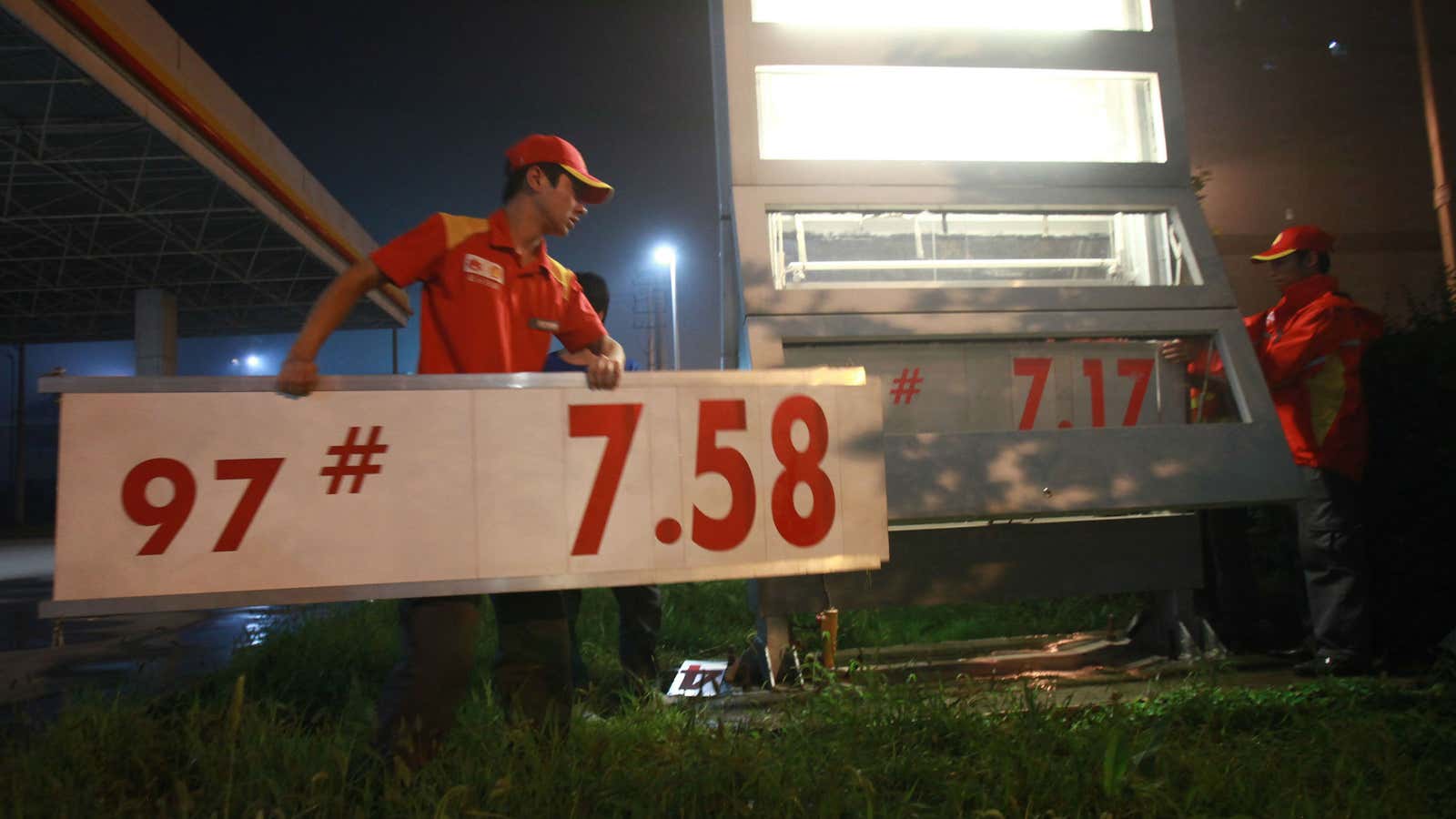Psy and Chinese political scandal weren’t the only things Chinese internet surfers cared about in 2012. Taxes, gas costs, and the price of silver were some of the top searches last year on Baidu, China’s main search engine. Here are a few of most common Baidu search queries related to business and the economy last year, and what they say about China going into 2013.
“Price of silver” 白银价格
After overturning a ban on owning precious metals, the government has been encouraging citizens to invest in silver. Middle-class Chinese, with few investment options, have been hoarding silver in ingots and unwrought form, seeing it as a less expensive alternative to gold. Analysts expect high demand for silver in China, the world’s second-largest consumer of the metal, to continue in 2013.
“Price of gasoline” 油价
Rising crude prices last year led authorities to raise gasoline prices three times over the year, pushing prices higher than those in the US at one point. Higher gas prices could be continue to be passed on to consumers in 2013 if China follows through with a promise to allow oil companies to set fuel prices.
“Paper gold” 纸黄金
Gold demand in China jumped to record levels in 2012 and the country was expected to surpass India as the world’s largest gold market (hasn’t happened yet.) An outgrowth of this gold rush was that “paper gold” certificates for gold bought and sold through banking accounts became very popular. In 2013, the product’s popularity could mean more investment but also more scams. Last July it was reported that over 5,000 investors had lost ¥380 billion ($59.6 billion) in an illegal gold futures scheme.
“Personal income tax” 个人所得税
About 60 million Chinese became exempt from paying income taxes when the government widened the tax-free bracket for low wage earners to include those earning ¥3,500 a month, up from ¥2,000 (many Chinese earn around ¥3,000 a month.) The move is part of government efforts to address inequality and inflation, priorities for 2013 as well.
“License lottery” 摇号
In attempt to curb pollution and traffic jams (known to last for days), Beijing, Shanghai and Guiyang cap the number of new license registrations for cars, awarding the registrations through a lottery system. More cities are following this path. Last year, Guangzhou unexpectedly began using the same system. In December, Beijing announced it would extend its license lottery another year.
“Bureau chief’s daughter flaunts wealth” 局长儿媳炫富
Zhang Yi, the daughter-in-law of a local food and drug safety official became an internet sensation after she posted pictures of recent luxury purchases (including a ¥150,000 Versace watch and a ¥15,000 purse from Paris) and bragged that her husband “is a civil servant, yet he’s never been to the office.” The new Chinese leadership under Xi Jinping has pledged to crack down on corruption in 2013 and beyond. A trend of women like Zhang, related to Chinese officials but thoughtlessly flaunting their wealth, might well accelerate Xi’s efforts.
